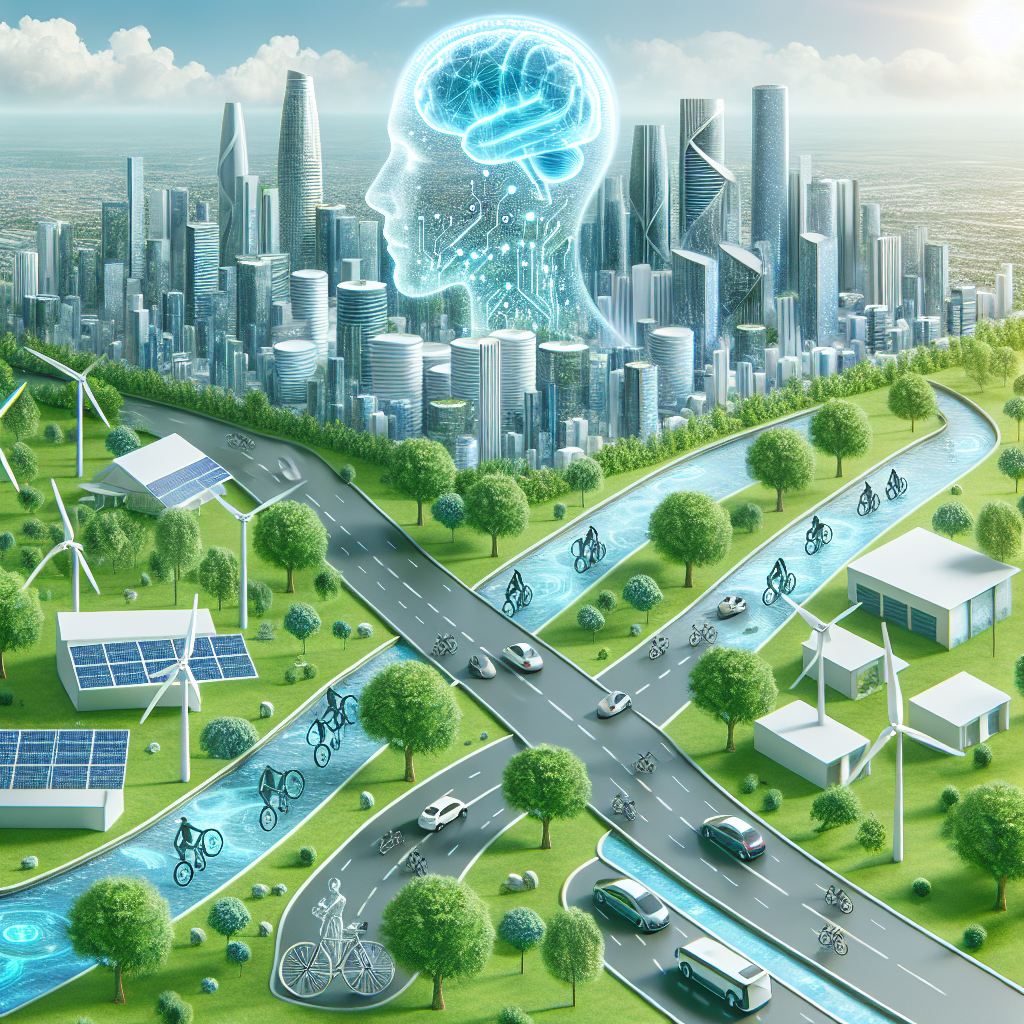The Role of AI in Sustainable Real Estate Development
Introduction
Artificial intelligence (AI) has been revolutionizing various industries, and real estate is no exception. In recent years, AI has played a significant role in sustainable real estate development, helping developers and investors make more informed decisions that benefit both the environment and society. This article explores the various ways in which AI is being used in sustainable real estate development and its impact on the industry.
How AI is Transforming Sustainable Real Estate Development
1. Energy Efficiency
One of the key aspects of sustainable real estate development is energy efficiency. AI algorithms can analyze vast amounts of data to identify patterns and trends in energy consumption, allowing developers to optimize energy usage in buildings. For example, AI-powered systems can automatically adjust lighting and HVAC systems based on occupancy levels, weather conditions, and other factors to reduce energy waste.
Furthermore, AI can help predict energy consumption patterns and recommend energy-saving measures, such as installing solar panels or energy-efficient appliances. By incorporating AI into building design and operations, developers can reduce energy costs, lower carbon emissions, and improve overall sustainability.
2. Green Building Design
AI is also being used to enhance green building design by optimizing building materials, layouts, and systems for maximum sustainability. AI algorithms can analyze various factors, such as climate conditions, building orientation, and occupant behavior, to recommend eco-friendly design solutions. For example, AI can suggest using renewable materials, incorporating natural lighting, and implementing green technologies like rainwater harvesting and green roofs.
By leveraging AI in building design, developers can create environmentally friendly and energy-efficient buildings that reduce the environmental impact and operating costs over time. Additionally, AI can help architects and engineers optimize building performance and achieve green building certifications, such as LEED or BREEAM.
3. Risk Assessment and Decision-Making
AI can also assist developers in assessing the environmental and financial risks associated with real estate projects. AI algorithms can analyze data from various sources, such as environmental reports, market trends, and regulatory requirements, to identify potential risks and opportunities. By leveraging AI-powered risk assessment tools, developers can make more informed decisions that minimize risks and maximize returns on sustainable real estate investments.
Furthermore, AI can help developers conduct scenario analysis and predict the long-term financial and environmental impacts of real estate projects. By simulating different scenarios and outcomes, developers can identify the most sustainable and profitable development strategies. AI can also assist in optimizing project timelines, budgets, and resources to ensure successful and sustainable real estate development.
4. Smart Building Operations
AI is transforming the way buildings are managed and operated, making them more sustainable and efficient. AI-powered systems can monitor and control various building systems, such as heating, ventilation, and air conditioning (HVAC), lighting, and security, in real-time. By analyzing sensor data and occupancy patterns, AI can optimize building operations to minimize energy consumption, reduce maintenance costs, and enhance occupant comfort.
Furthermore, AI can enable predictive maintenance by monitoring equipment performance and detecting potential issues before they escalate. By proactively addressing maintenance needs, developers can prolong the lifespan of building systems, reduce downtime, and minimize repair costs. AI can also improve building security by analyzing surveillance footage, identifying anomalies, and alerting security personnel to potential threats.
Frequently Asked Questions (FAQs)
Q: How can AI help developers achieve green building certifications?
A: AI can analyze building design and performance data to ensure compliance with green building certification requirements, such as LEED or BREEAM. By optimizing building materials, systems, and operations, developers can enhance sustainability and achieve certification goals.
Q: What are some examples of AI applications in sustainable real estate development?
A: Some examples of AI applications in sustainable real estate development include energy management systems, green building design tools, risk assessment platforms, and smart building operations solutions.
Q: How does AI contribute to the sustainability of real estate projects?
A: AI helps developers optimize energy usage, reduce environmental impact, minimize risks, and improve building performance in real estate projects. By leveraging AI technologies, developers can create sustainable and profitable real estate developments that benefit both the environment and society.
Q: What are the benefits of using AI in sustainable real estate development?
A: The benefits of using AI in sustainable real estate development include increased energy efficiency, reduced operating costs, enhanced building performance, improved risk management, and greater environmental sustainability. AI enables developers to make data-driven decisions that optimize sustainability and profitability in real estate projects.
Conclusion
AI is playing a crucial role in transforming sustainable real estate development by enhancing energy efficiency, green building design, risk assessment, and building operations. By leveraging AI technologies, developers can create environmentally friendly and financially viable real estate projects that contribute to a more sustainable future. As AI continues to evolve and innovate, its impact on the real estate industry is expected to grow, driving more sustainable development practices and benefiting both the environment and society.

